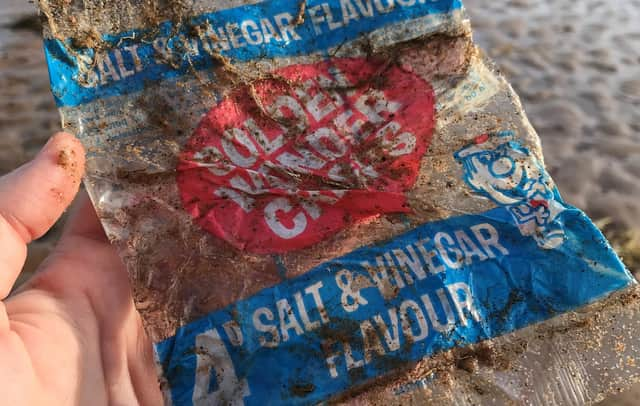Plastic pollution: We must rediscover the passion inspired by Blue Planet when Covid passes – Scotsman comment
This article contains affiliate links. We may earn a small commission on items purchased through this article, but that does not affect our editorial judgement.


Naturalist and broadcaster David Attenborough said he had hoped the programme would make a difference, but had been “absolutely astonished” by the number of people who had been “inspired to want change”.
Suddenly, politicians and major companies were taking the issue seriously, announcing a series of measures designed to reduce the amount of single-use plastic in particular.
Advertisement
Hide AdAdvertisement
Hide AdHowever, the all-encompassing nature of the Covid outbreak has understandably taken our eye off the ball to a significant degree and resulted in an increase in items made from single-use plastic such as disposable face masks.
The discovery of a Golden Wonder crisp packet and a Fairy Liquid bottle, believed to date back to 1971, on a beach on the Ythan Estuary in Aberdeenshire demonstrates just how long even the flimsiest of plastic can survive in the natural world. A 50-year legacy for the sake of a few minutes of consumption of a small amount of deep-fried, salted potato.
Plastic does eventually break down but the resulting micro- and nano-particles can be harmful and not just to the marine environment. Researchers at the Leibniz-Institute of Freshwater Ecology and Inland Fisheries have estimated that a third of plastic waste ends up in freshwater and the soil.
If consumed in food, the smallest particles are able to get into the bloodstream of animals and even cross the blood-brain barrier or the placenta.
A study by Lund University academics in Sweden concluded that tiny pieces of plastic had caused behavioural disorders in fish. “Our findings demonstrate that plastic nanoparticles are transferred up through a food chain, enter the brain of the top consumer and affect its behaviour, thereby severely disrupting the function of natural ecosystems,” they wrote.
So, when the immediate health crisis caused by Covid has passed, there is a pressing need to remember the warning so eloquently sounded by Blue Planet and take action swift and determined action to address this globally important problem before it gets even further out of hand.
A message from the Editor:
Thank you for reading this article. We're more reliant on your support than ever as the shift in consumer habits brought about by coronavirus impacts our advertisers.
If you haven't already, please consider supporting our trusted, fact-checked journalism by taking out a digital subscription.
Comments
Want to join the conversation? Please or to comment on this article.